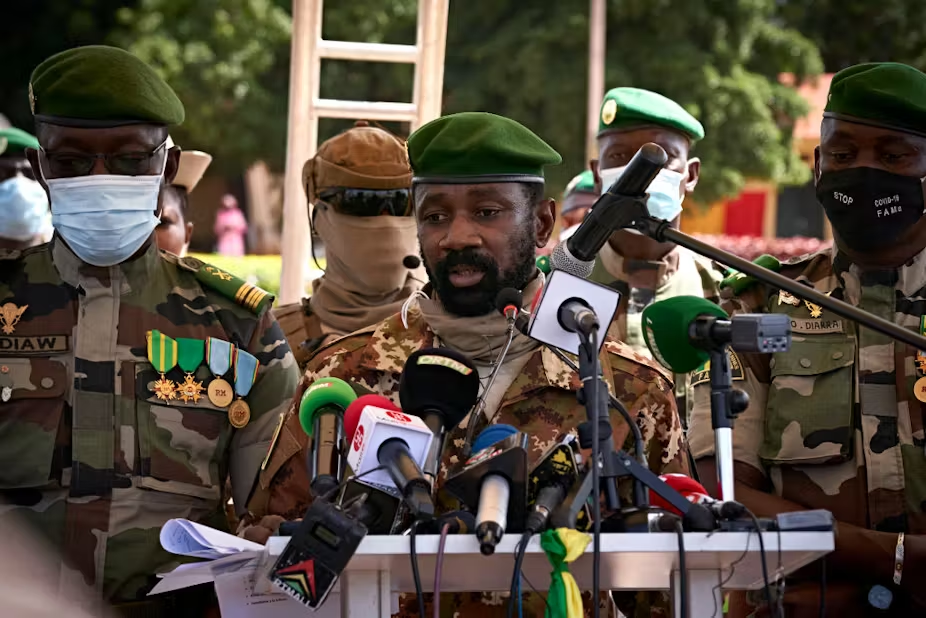
August 18, 2025, marks five years since the military overthrow of President Ibrahim Boubacar Keïta (IBK), a watershed moment that set Mali on a prolonged path of military-led governance.
Since the 2020 coup, the country has been ruled by the officers who orchestrated the putsch, navigating institutional reforms, political upheavals, diplomatic realignments, and ongoing insecurity.
The transition initially saw a civilian government under Bah N’Daw and Moctar Ouane in September 2020, but by May 2021, the military resumed full control, installing Colonel Assimi Goïta as head of state.
Subsequent measures have reshaped Mali’s political landscape: a new Constitution in July 2023 established a strengthened presidential regime, political parties and organizations were dissolved in May 2025, and the Transition Charter was revised in July 2025 to set a renewable five-year presidential term until national stability is achieved.
A National Charter for Peace and Reconciliation was also adopted on July 30, 2025, following Mali’s withdrawal from the Algiers Agreement, creating an internal framework for conflict resolution.
Electoral reforms have been introduced, including amendments to the 2022 Electoral Act extending voter registration periods and easing submission requirements to the Independent Electoral Management Authority (EIMA). Yet the absence of a fixed electoral calendar continues to generate uncertainty.
Political tensions persist, with arrests in early August 2025 of eleven individuals, including French national Yann Vezilier and Malian officers, over an alleged conspiracy against state institutions. Former Prime Minister Choguel Maïga, replaced in December 2024 by General Abdoulaye Maïga, has also been investigated for alleged embezzlement linked to his office.
Internationally, Mali severed military cooperation with France after Operation Barkhane’s departure in 2022, strengthening ties with Russia. In September 2023, Mali, Burkina Faso, and Niger formed the Alliance of Sahel States (ESA), becoming a Confederation in July 2024, and collectively withdrawing from ECOWAS by January 2025. Relations with Algeria, however, were strained following the destruction of a Malian drone in March 2025, resulting in reciprocal airspace closures and ambassadorial recalls.
Security operations remain active. In April 2025, the Malian Armed Forces launched Operation Dougoukolokô in the north and center, later repelling coordinated attacks by JNIM in Niono, Nioro du Sahel, and Diboli. Arrests of key extremist figures, including Abraham Boubacar (“Oubel”) and “Abou Dahdah,” underscore ongoing efforts, though the United Nations continues to warn of persistent threats.
Five years on, Mali’s military-led transition continues to navigate reforms, regional tensions, and insecurity, with no electoral timetable in sight, leaving the country’s democratic future uncertain.



